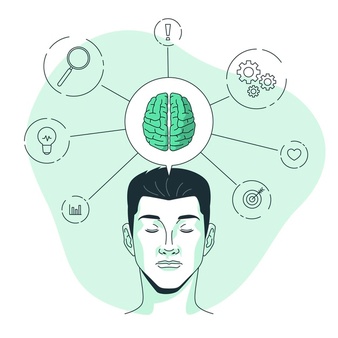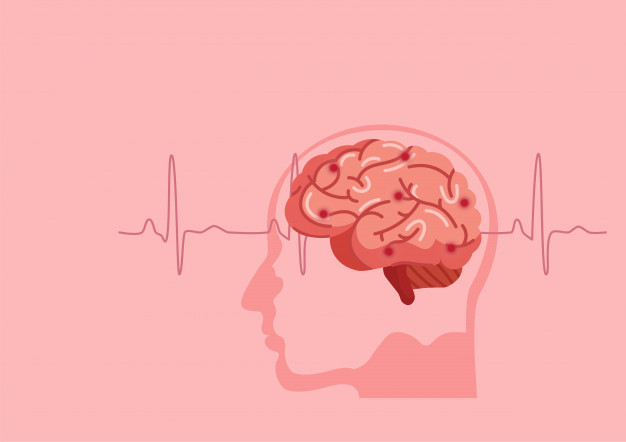
Have you ever found yourself in a situation where you had to think quickly and couldn’t come up with a response?
Perhaps you simply want to be more centered in your daily interactions. Learning to think quickly will help you advance in your job, education, or personal life.
Learning or remembering the tips below will help you become smarter and increase your IQ when it comes to answering questions.
ALLOW YOUR MIND TO UNWIND.
When you need to react quickly and on the spot, this can seem easier said than done. However, you can relax by using relaxation techniques such as the ones mentioned below:

1. Take a few deep breaths in and out. Your heart rate will slow, and more oxygen will be delivered to your brain.
2. Tell yourself an optimistic and affirming letter. “I’ve got this,” for example, could suffice. If you often encounter circumstances that necessitate fast thinking, you may want to plan ahead of time so that a particular phrase comes to mind.
3. Tense and relax the muscles for a few seconds. You would be able to focus more if you put in the effort. Choose muscles that aren’t visible, like the biceps or thigh muscles, because you don’t want to expose your tension to your interrogator.
PAY CLOSE ATTENTION TO THE ISSUE.
By looking directly at the questioner and paying careful attention to the question, you will ensure that you’re correctly understanding what he or she is asking. Distract yourself by putting your phone aside, shutting off the television, and closing your laptop.
You should even look at the interrogator’s body language. Focus on the person’s eyes, facial expressions, and body positions as he or she asks the question.
If the person is making eye contact, laughing, and facing you, for example, these are all signs that he or she is interested in what you have to say. Bear in mind, however, that facial expressions can be deceiving. People are skilled at hiding their emotions with their facial expressions.
REQUEST THAT THE QUERY BE REPEATED.
If you don’t understand the issue, respectfully request that the questioner repeat it. It’s critical that you completely comprehend what the individual is asking. You’ll have a little more time to think as a result of this.
“Could you please repeat the question?” is a good example.
REPEAT THE QUESTION OUT LOUD.
To make the question easier to grasp, you may repeat it to yourself. Saying it out loud to yourself can help you understand it better and give you more time to think of a response.
Don’t be afraid to elicit additional information. A simple explanation may enable you to respond quickly and competently if the question is vague or uses unfamiliar jargon. “Could you please clarify what means?” is a good example. “I’m not sure what you’re talking about,” or “I’m not sure what you’re talking about.” “Could you rephrase the question?”
MAKE AN EFFORT TO SPEAK AND WRITE CLEARLY.
You can easily exchange information with others and prevent misinterpretation by using clear communication. Excessive “ums” and “pauses” should be avoided at all costs. Make use of nonverbal signals including eye contact and well-timed pauses.
Use proper grammar, assess the formality of a case, and choose an acceptable response.
DEVELOP A GROWTH MENTALITY.

Learning from your mistakes, according to studies, strengthens your mental processes. Believe that you will improve your ability to think quickly, and you can! Examine your accomplishments, but even more importantly, examine your shortcomings. Consider mistakes to be a necessary part of learning.
PARTICIPATE IN EVENTS THAT ENCOURAGE QUICK THINKING.
Your brain is a muscle that can be strengthened with practice. Participating in activities that encourage fast thinking has the added advantage of improving your mindset. When you’re honing your quick-thinking skills, you’ll feel happier and more creative.
You could try the following:
- Play games that require you to read comprehension. Read an article or a chapter of a book as quickly as you can, then take 20 seconds to summarize it.

- Recite the words or names for each letter of the alphabet. Try to come up with a certain number of words for each letter as quickly as possible.
- Play games that need you to keep track of time.
- Try out some online quizzes or applications that offer brain-training exercises.
- Make a list of stuff you’ve recently done or seen, such as cars, books, or movies.
- Play comedy games with a pal or a coworker.
MULTITASKING SHOULD BE AVOIDED AS MUCH AS POSSIBLE.
When faced with a question or a problem, concentrating on one task at a time will keep your mind focused and allow you to react more quickly. And if you’re busy, try to concentrate on just one job at a time.
Choose one thing to concentrate on if you have a line of customers waiting for service and the phone is ringing, for example. For instance, you may want to prioritize the customers in front of you and pass the phone to someone else, or even let it go to voicemail. Alternatively, if you have a lot of homework to do, focus on one task at a time. Finish that task before moving on to the next.
The majority of people want to work and communicate with people who can listen and respond to questions in a clear and understandable manner.

